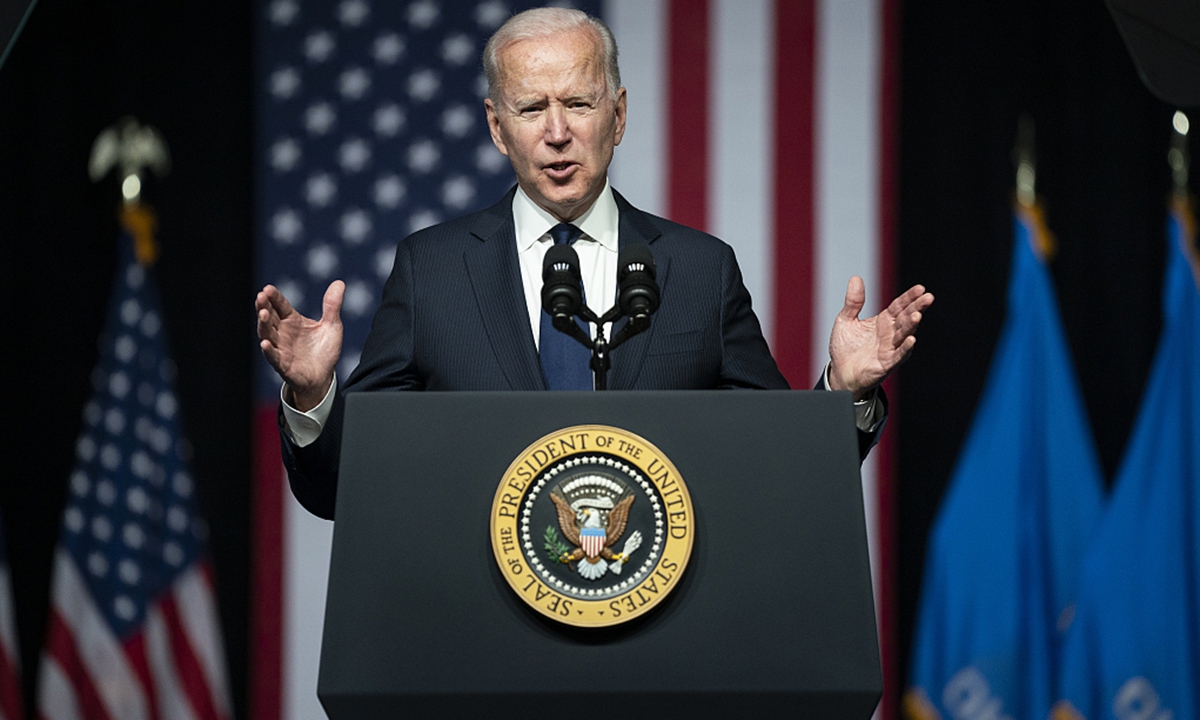
Photo: CFP
On Tuesday evening Joe Biden became the first American President to acknowledge the Tulsa Massacre, where in 1921 a mob of white nationalists in Oklahoma, including the police, massacred an estimated 150-200 African American residents and burnt down their properties, injuring 800 more and with the authorities imprisoning over 6,000. The local authorities subsequently engaged in a coverup, revising the death toll down to just 36. Those responsible were never held accountable. Only now, 100 years later, has President Biden subsequently admitted this event took place. But having only done so after a century has passed? What is the significance of it? The event compares to Canada discovering the bodies of over 215 indigenous children underneath a school with Justin Trudeau similarly mourning.
The similarities are striking, but not coincidental. The bloc we know to be the "Anglosphere" (consisting of Australia, Canada, New Zealand, the United Kingdom and the United States) are still the living legacies of British Imperialism. They are all built upon the legacy of the complete destruction, subjugation and elimination of indigenous peoples in lands that were not their own. None of these countries have ever truly been "held to account" for their crimes, and as the above shows, it only acknowledged them long after the incident happened. Those responsible have since passed away, so have the victims.
Despite this, these countries have subsequently been able to re-write the global narrative to depict themselves as "the good guys" as righteous, crusaders of justice and freedom who have a responsibility to bring democracy and human rights to other nations. They often use these narratives to spearhead political attacks, wars and interference in the affairs of other countries, as is frequently the case concerning China. This is a phenomenon known as "Anglophone" exceptionalism. This sense of identity consolidated largely during World War II, whereby the defeat of the Nazi Germany, an also genocidal state, was ultimately vanquished and allowed these countries to rebrand themselves as the saviours of the world.
In light of such exceptionalism and narratives, these states have subsequently whitewashed their extensive atrocities and later adopted a "it happened, but is in the past" approach. This is an attitude whereby their leaders eventually admit such things occurred, but ultimately only pay lip service and deny they have any contemporary political relevance, in practice not satisfying the demands of justice.
For example, the British government did not act on the Bloody Sunday Massacre of Irish (which took place in 1972 with 14 killed by British soldiers), until the 2010s. Few were prosecuted from this. Likewise, the "stolen generation" policy of abducting indigenous Australians from their families in the 1960s was not admitted and apologized for by the government until 2008. There are still many, many more things otherwise unaccounted for. Was Britain ever made to pay for its crimes against China? Or the Indian subcontinent? Or Africa?
Biden's visit to Tulsa is comparatively a meaningless, empty gesture. Yet that alone will infer fury on many right-wing leaning Americans and Republicans disinterested in such a legacy, who otherwise continue to treat contemporary movements for racial justice, such as Black Lives Matter, with disdain. Unsurprisingly, contemporary racism and elitism in Anglophone countries comes unabated. Whilst atrocities such as the murder of George Floyd by Derek Chauvin was indeed handled, nonetheless the longevity of racist sentiments in these nations comes more so by subtly - with apathy and passive aggression, embodied still in the belief that these countries are "superior" and have a right to impose their culture, values and ideology upon the world. This pathetic paradox persists even if that comes at the expense and suffering of others.
Given this, such countries have no right to preach and evangelize toward China. These countries abuse real human rights issues with false accusations of "genocide" and sowing false narratives concerning the Xinjiang autonomous region. There are few other countries that have committed as deep, extensive and globally reaching crimes as have the name of Anglophone exceptionalism and the settler states of British Imperialism. Yet do they care? Does the world care? At the very least, Biden's admission of the Tulsa Massacre ought to be a point of self-reflection, but that might be asking too much.
The author is a political and historical relations analyst. opinion@globaltimes.com.cn
